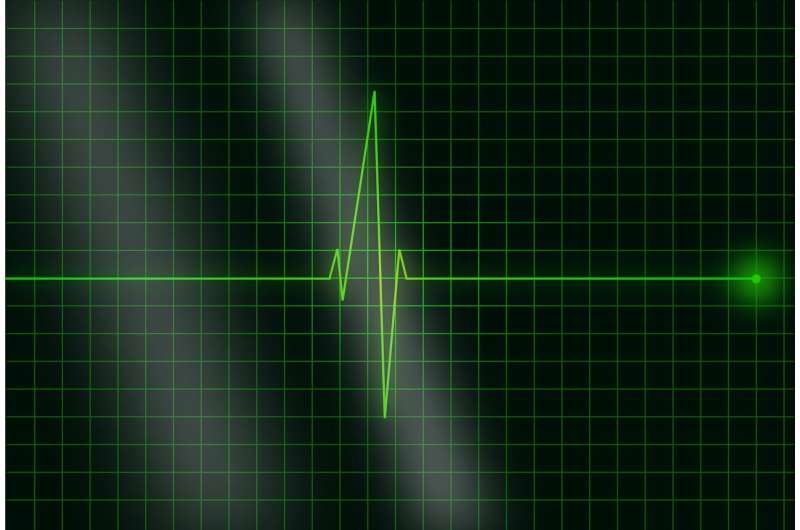Hydroxychloroquine, mainstay lupus treatment, not associated with serious cardiac complication

New research presented this week at ACR Convergence, the American College of Rheumatology's annual meeting, shows that hydroxychloroquine, an antimalarial drug and mainstay therapy for lupus, does not appear to be associated with QTc interval prolongation, an irregularity of the electrical activity of the heart that places patients at risk for arrhythmias (irregular heartbeats).
Systemic lupus erythematosus (SLE or lupus), is a chronic (long-term) disease that causes systemic inflammation which affects multiple organs. In addition to affecting the skin and joints, SLE can affect other organs in the body such as the kidneys, the tissue lining the lungs (pleura), heart (pericardium), and brain. Many patients experience fatigue, weight loss and fever.There is limited data to show whether hydroxychloroquine increases SLE patients' risk for cardiac toxicities like heart arrhythmias, and evidence of drug exposure relies on medical records or pharmacy dispensing review. This new study is the first to report on actual levels of hydroxychloroquine in lupus patients' whole blood and their QTc intervals, as measured by EKG during a routine clinic visit.
"We and others previously reported on safety of hydroxychloroquine in people with SLE, recognizing that these patients may have other conditions that put them at risk for arrythmias, including chronic kidney disease (CKD), older age, underlying cardiomyopathy or using other medications that prolong their heart rhythm intervals (QTc)," says H. Michael Belmont, MD, a rheumatologist at NYU Langone Health in New York City and the study's co-author. "In this study, we explored the relationship between level of drug in the blood, all the other variables, and the effect on patients' cardiac conducting system as reflected in their QTc interval."
This prospective study included 84 patients who fulfilled the ACR/SLICC criteria for SLE and had taken hydroxychloroquine for at least three months at standard of care doses. They had whole blood drawn and EKGs performed during routine outpatient visits between February 5 and May 10, 2021. Patients included were 93% female, with 47% European, 35% African, 25% Hispanic and 15% Asian in ancestry. Hydroxychloroquine blood levels were higher in patients taking a 400 mg dose, lower after taking the drug for 10 years due to dose reduction, and unrelated to estimated glomerular filtration rate (eGFR), a measure of kidney function.
The study found no correlation between hydroxychloroquine blood levels and QTc intervals in patients with SLE, regardless of whether they were taking a 200 or 400 mg dose, had chronic kidney disease, or underlying cardiomyopathy. The study did find that blood hydroxychloroquine levels were correlated to QTc changes if patients were also taking drugs that prolong their heart rhythm intervals. However, none of the patients had interval changes longer than 456 milliseconds, a QTc interval often considered in the borderline range.
"This study's results add to the data and reassurance regarding the absence of a clinically consequential risk for malignant ventricular arrhythmias, such as torsade de pointes, in patients with SLE taking hydroxychloroquine. These findings provide the most direct confirmation by relying on measurement of the drug level in the patient's blood. This eliminates concerns, such as patients' adherence with prescribed doses," says Dr. Belmont. "In the future, more research could focus on the drug's effects in elderly SLE patients with underlying heart disease," he adds.
More information: Mayce Haj-Ali et al, Whole Blood Hydroxychloroquine Levels Do Not Correlate with QTc Intervals in a Cohort of 84 SLE Patients: Evidence That Antimalarials Are Not Associated with Cardiac Conduction System Toxicity [abstract]. Arthritis Rheumatology (2021). Available at acrabstracts.org/abstract/whol … ion-system-toxicity/



















